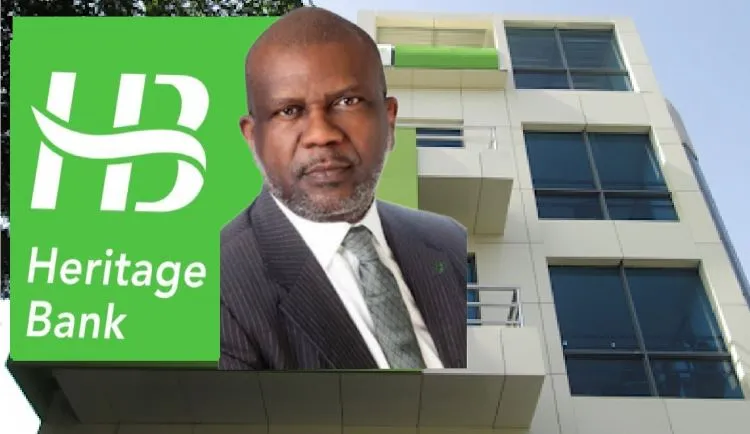The House of Representatives, on Tuesday, waded into the crisis rocking the Akinola George-Taylor led Heritage Bank Plc, which prompted the Central Bank of Nigeria to withdraw the bank’s operating licence recently.
The apex bank had on June 3, 2024, in a statement signed by its acting Director, Corporate Communications, Mrs Hakama Ali, attributed the decision to the failure of the bank to comply with best practices.
The development immediately led to public anxiety over the safety of depositors’ funds.
However, the CBN allayed those fears and assured account holders of its readiness to secure their deposits with the now-defunct bank.
The resolution of the House mandating the CBN to carry out the investigation followed the adoption of a motion of urgent public importance during plenary on Tuesday, filed by the member representing Idemili North/Idemili South Federal Constituency of Anambra State, Uchenna Okonkwo.
The House subsequently urged the CBN to conduct a thorough investigation of the leadership and management of Heritage Bank to “Identify any possible issues of mismanagement or wrongdoing that may have contributed to the bank’s failure.”
It also urged the NDIC “to conduct a comprehensive review of its operations and the effectiveness of its mandate to ensure that it is adequately equipped and resourced to fulfil its role as deposit insurer and investor of failed banks.”
This is just as the House urged the parliament to strongly advocate fair and compassionate compensation for depositors “Who have been adversely affected by the unfortunate failure of Heritage Bank.”
Other resolutions include urging the Federal Government to prioritise the establishment of a robust and well-funded depositors’ protection fund “To provide greater financial security and assurance for depositors in the event of bank failures, and to facilitate timely and fair compensation for affected depositors.”
The House further mandated its Committee on Banking Regulations to commence public awareness and education campaigns to inform citizens about the risks associated with banking and the importance of diversifying their financial holdings.
Moving the motion on ‘Urgent need to protect the Heritage Bank’s depositors’ interest, said noted that the Nigerian Deposit Insurance Corporation has initiated the liquidation process of Heritage Bank by Section 55, sub-sections 1 and 2 of the NDIC Act 2023, adding that “The corporation has swiftly commenced the liquidation procedures of the failed bank, prioritising immediate verification and disbursement of insured deposits to the bank’s depositors.”
He lamented “That the NDIC has initiated the liquidation process, which regrettably limits the verification and payment of depositors to a maximum insured amount of N5m.”
The Labour Party chieftain also noted that the NDIC, in its statement dated June 3, 2024 “Specified that depositors with funds surpassing N5m will receive liquidation dividends only after the realisation of the bank’s assets and the retrieval of debts owed to the bank.”
He argued that some depositors allegedly entrusted significant sums, “Amounting to more than N10bn only to Heritage Bank, representing their hard-earned savings and financial security,” noting that “This realization underscores the magnitude of the financial losses and uncertainties they are now facing, highlighting the profound impact of the bank’s failure on their lives and well-being.”
The N5m compensation, the lawmaker added is inadequate given the prevailing economic situation in the country today even as he blamed the apex bank for failing to disclose the financial health of the bank earlier enough for depositors to take urgent steps to withdraw their money.
“The House is concerned that the CBN’s failure to promptly disclose the financial instability of Heritage Bank left depositors vulnerable to unexpected financial losses. This lack of transparency has not only eroded public trust in the banking system and regulatory bodies but has also intensified the distress and uncertainty faced by depositors who relied on the bank for their financial security.
“We are concerned by allegations suggesting that the CBN had prior knowledge of the bank’s deficiencies for an extended period but failed to enact timely corrective measures. This underscores the pressing need for a thorough review of regulatory oversight mechanisms, as it is unjust for depositors to suffer the consequences of regulatory inaction. Such a review is essential to restoring confidence in the regulatory framework and ensuring the protection of depositors’ interests,” he added.














